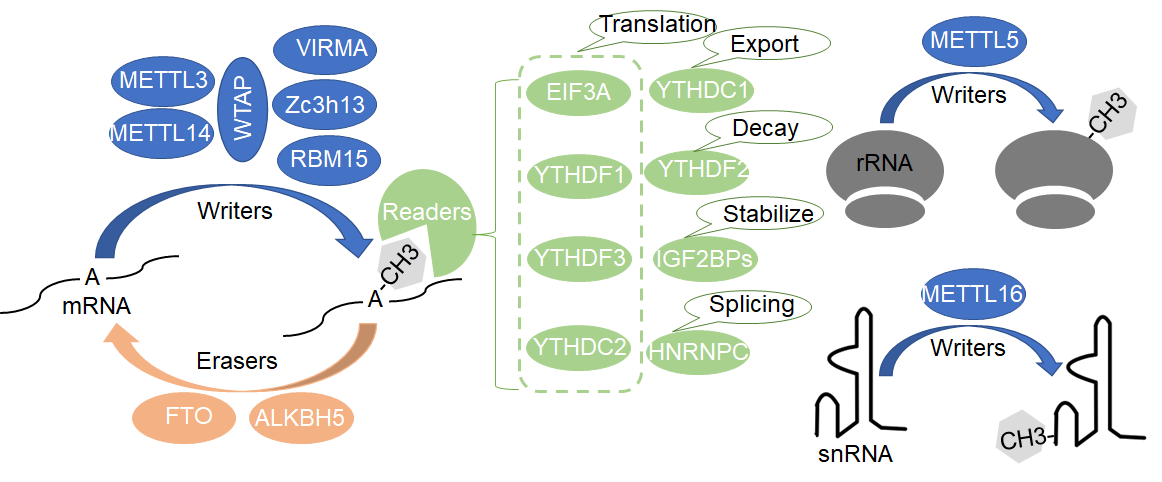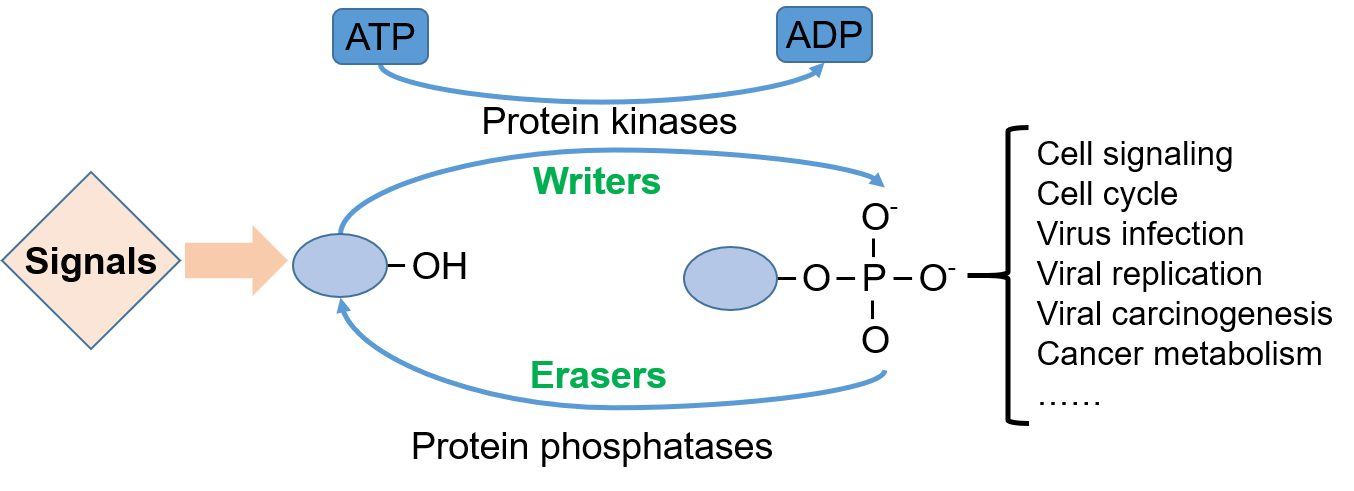
✦ Post-transcriptional modifications
In the last few years, our ability to map RNA modifications has revolutionized our understanding of them and they are far more widespread than previously thought. To date, >170 different types of post-transcriptional RNA modifications (RMs) have been detected, which occurs on different types of RNA and regulates nearly every stage of RNA life. Additionally, recent studies have revealed their roles in cell/embryo/neuron development, tumor development and metastasis, virus infection, virus-associated metastasis, and resistance to anti-tumor drugs.
To decipher the functions of RMs under physiological conditions and effects of aberrant RMs under pathological condition, we are developing bioinformatics tools and sources, such as the mutation associated RMs and conservation of RMs. We are also exploring the dynamic epitranscriptome under clinical treatment to find the potential therapy method for diseases.

✦ Post-translational modifications (PTMs)
Post-translational modification (PTM) is one of the most important regulatory mechanisms of biological processes in vivo. Hitherto more than 680 types of PTMs have been reported, including phosphorylation, ubiquitination, lactylation, and so on. The aberrance of PTM system is closely associated with human diseases. With the in-depth studies of PTMs and the rapid development in mass spectrometry-based PTMome, a large number of modification regulators, substrates and sites have been experimentally characterized.
Therefore, our aim is the investigation of functions and regulation for PTMs in proteins, through the development of bioinformatics resources and systematical analysis of PTMome.